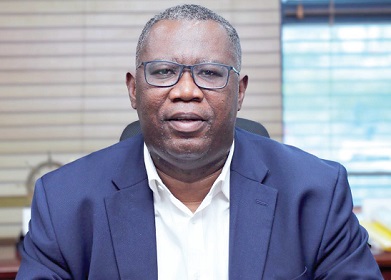
$3.6 billion contracts awarded to Indigenous companies - Petroleum Commission
The Petroleum Commission (PC) has facilitated the awarding of contracts worth over $3.6 billion to Indigenous Ghanaian Companies (IGCs), as revealed by Kwaku Boateng, the Director of Local Content.
In addition, approximately $8.7 billion in contracts have been granted to foreign companies, while $6.3 billion has gone to Joint Ventures (JVs).
Mr. Boateng also highlighted that local content initiatives in Ghana's upstream petroleum sector have directly created over 10,000 jobs.
Significant investments have been made in areas such as cementing units, waste management systems, fabrication facilities, hydraulic and engineering services, aviation hangars, manufacturing of bolts and nuts, coating plants, chemical blending, and the establishment of specialized training centers.
Speaking at the recently concluded Ghana Energy Week in Takoradi, Mr. Boateng delivered a presentation on “Building Value and Promoting Investment through Local Content.”
The event, organised under the Western Regional Coordinating Council, revolved around the theme, “Renaissance of Ghana’s Energy: The Renewed Commitment Towards Inclusive and Sustainable Energy Transition, Decarbonisation, and Energy Poverty Eradication for Economic Development.”
Mr. Boateng underscored the importance of sustainably managing Ghana’s oil resources to drive socio-economic growth. He assured that the Commission is committed to fostering transparency, cooperation, and mutual benefits within the sector.
To further attract investment, he outlined strategies such as enhanced government-led investment promotion, bolstering local content initiatives, and leveraging regulatory incentives under Regulation 25 of LI 2204 to stimulate technological advancement in the industry.
The Commission, he added, aims to encourage industrial collaboration, technology transfer, and infrastructure development. “We will promote the substitution of imported materials with local ones and provide incentives for International Oil Companies (IOCs) to use Ghana as a hub for sub-regional operations,” he said.
Mr. Boateng emphasized the importance of in-country spending, empowering local businesses through partnerships and strategic alliances, and supporting IGCs via subcontracting and incubation programs. He also highlighted plans to focus on domestic value creation, improved access to financing, and infrastructure development, including the rehabilitation of the Tema Shipyard.
Addressing challenges, Mr. Boateng noted the low levels of activity, limited local technical capacity, and inadequate infrastructure as barriers to local content growth. Other obstacles include fragmented policies, high capital costs, weak manufacturing capabilities, and the issue of fronting.
He explained that many developing countries have leveraged local content policies to catalyze economic growth and transition. “The goal is to maximize national value creation throughout the petroleum value chain,” he said.
He stressed the importance of workforce development to create employment opportunities, support local procurement, and strengthen supply chains.
